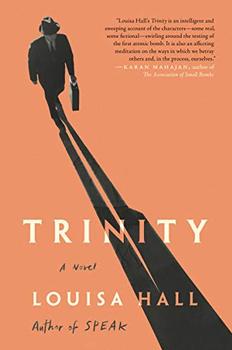Summary | Excerpt | Reviews | Beyond the book | Read-Alikes | Genres & Themes | Author Bio

Brendan Mathews has, up until now, been known largely for his award-winning short fiction, stories that have been published in prestigious literary magazines and anthologized in The Best American Short Stories, among other publications. But now that Mathews has turned his talents to the novel form for the first time, he decided to dream big, in a sprawling, ambitious, colorful historical novel that feels expansive and all-encompassing, about a million miles away from the restraint and limited palette of most short fiction.
This ambition is more than appropriate, given Mathews's chosen time period: the bustle and bluster of New York City between the two World Wars. His version of New York in 1938 feels limitless, full of energy and promise and excitement, and also full of Americans remaining blithely - or perhaps willfully - oblivious to the darkness and horror of fascism's creeping advances over in Europe.
At the center of Mathews's novel is the Dempsey family, three Irish brothers who find themselves unexpectedly reunited in New York City. Martin, the oldest brother, is a talented musician and composer who emigrated to America years before. He's since married an American woman – much to the disappointment of her power-broker father, who had hoped for a more strategic match for his older daughter. Martin is surprised to learn that his brothers Francis and Michael have arrived in New York as well. He's even more surprised to learn that Francis, an ex-con who's masquerading as Scottish nobleman Angus MacFarquhar, is staying at the exclusive Plaza Hotel, accompanied by Michael, a former seminarian who has suddenly gone deaf and mute, remembering nothing of the circumstances that brought the brothers to the States.
It turns out that what's financing Francis's exploits is a bundle of money stolen – essentially on a whim and without spite – from the increasingly resurgent Irish Republican Army. Francis heedlessly seems to believe that the money financing his newly first-class lifestyle is his, free and clear…but his actions have not escaped the notice of a powerful member of the Irish mob, who recruits another Irish emigrant with one-time ties to the Dempsey family to bring Francis back into the fold.
Meanwhile, the Dempseys cross paths with a number of other New York denizens both real and imagined, including a talented Czech photographer whose visa is about to run out as well as a talented black bandleader looking for his big break. Over the course of one eventful week, readers encounter broken engagements, big band music, palm readers, heiresses, and an assassination plot that might mean the ruin of the Dempsey clan once and for all.
Set against the background of a city gleefully hosting the optimistic (and, to modern readers, politically problematic) World's Fair (see Beyond the Book), The World of Tomorrow shows readers characters – and a city and a country – convinced that reinvention and new beginnings are not only possible but almost inevitable, that the whole world is on a predetermined path toward progress and prosperity. The carefree confidence of late 1930s America is, of course, the height of dramatic irony, given that present-day readers know what happens next (and what was already happening overseas). Mathews's accomplishment with this novel is illustrating that confidence on both a macro and micro scale, offering readers a dynamic portrait of both a whole city and an intimate group of characters. The energetic storytelling, touches of humor, and ability to build suspense point towards a promising future for Mathews as a novelist interested in exploring ambitious ideas on a big canvas.
![]() This review was originally published in The BookBrowse Review in September 2017, and has been updated for the
July 2018 edition.
Click here to go to this issue.
This review was originally published in The BookBrowse Review in September 2017, and has been updated for the
July 2018 edition.
Click here to go to this issue.

If you liked The World of Tomorrow, try these:

by Elizabeth Gilbert
Published 2020
From the # 1 New York Times bestselling author of Eat, Pray, Love and The Signature of All Things, a delicious novel of glamour, sex, and adventure, about a young woman discovering that you don't have to be a good girl to be a good person.

by Louisa Hall
Published 2019
From the acclaimed author of Speak comes a kaleidoscopic novel about Robert Oppenheimer - father of the atomic bomb - as told by seven fictional characters.
There is no such thing as a moral or immoral book. Books are either well written or badly written. That is all.
Click Here to find out who said this, as well as discovering other famous literary quotes!
Your guide toexceptional books
BookBrowse seeks out and recommends the best in contemporary fiction and nonfiction—books that not only engage and entertain but also deepen our understanding of ourselves and the world around us.